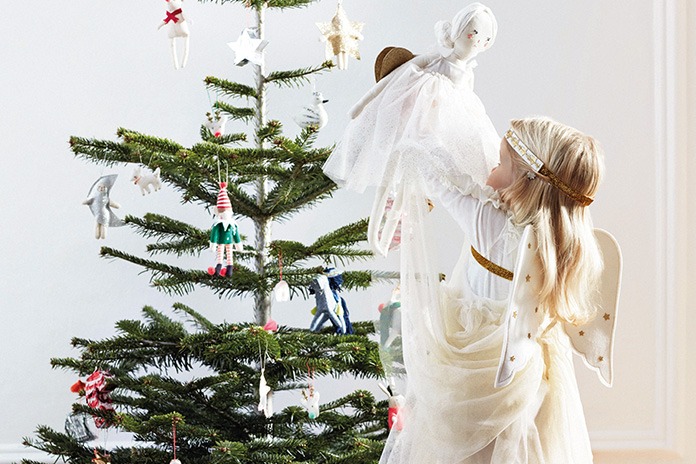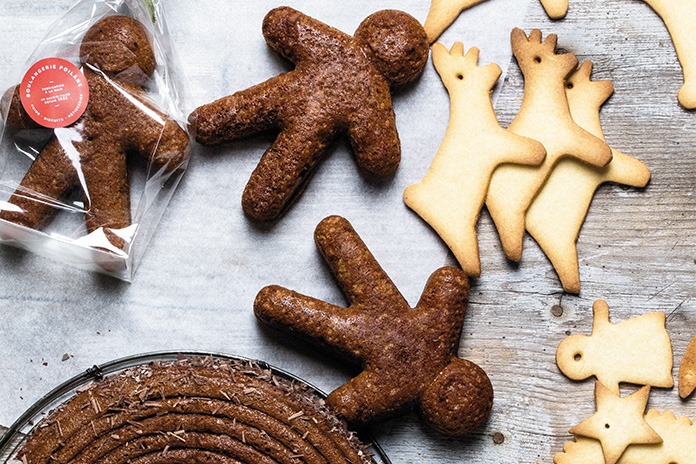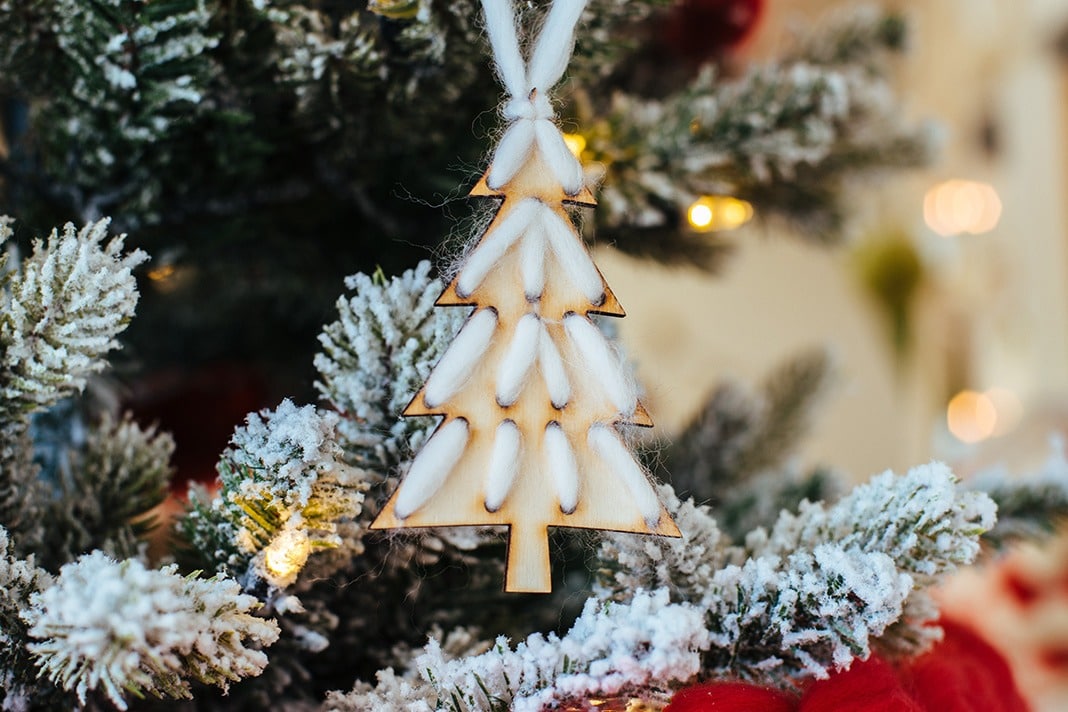We love Christmas. Like, really love it. It’s the diamond nestled among the grubby coals of an English winter, the thing that gives colour to those colourless months of grey skies and sodden ground. But there’s no denying Christmas is complicated.
Years ago, we could enjoy the festive period in relatively straightforward style, complete with plastic trees, plastic decorations, plastic toys and every other throwaway (probably plastic) novelty the high street could muster. But those guilty times were also, ironically, more innocent. Many of us didn’t realise the impact of our actions – and our consumption. Now we do. And with rising awareness about the environmental effects of unfettered consumption comes a tricky relationship with this most wasteful of holidays. So how to create a Christmas brimming with magic and fun (not to mention toys) without wrecking the planet? Here are five simple (and easily achievable) starting steps…

1.Keep Your Tree
Potted trees are better for the planet, as they can go on absorbing carbon dioxide when they’re replanted in your garden after the holiday. But even if you don’t have the space to keep your tree forever (think how cool it is for kids to welcome a tree back into the home like an old friend, year after year), there are ways to ensure a cut tree doesn’t go to waste completely. Namely, your local council’s recycling programme or a homegrown alternative: chop your tree into logs and use them to fuel a fire or wood-burning stove. You’ll be releasing carbon dioxide into the air when you burn it, but if you buy your tree from a local, responsible provider – one who can assure you they plant a new tree for every one they sell – you’ll at least know that your tree’s replacement will absorb an equal amount.
Check out: Christmas Forest and Pines and Needles
2. Sustainable Style
Decorations provide ample opportunity to ditch synthetic materials and embrace natural, eco-friendly alternatives. Use beeswax or soy candles instead of paraffin ones, layer your tree with Scandi-style paper chains instead of tinsel and invest in keepsake decorations of brass, wood, paper and shatterproof glass. Kids will love getting crafty with wool, felt, cardboard and foil paper, making decorations you can treasure rather than trend-led, cheaply made tat that’s probably travelled from China to reach your tree.
Check out: Ferm Living for decorations, Meri Meri for plastic-free crackers and partyware
3.DIGITAL GREETINGS
Greetings cards appear to be on the decline, which is a shame in one sense – it’s always good to stay in touch. But we still send hundreds of millions every year, so if you fancy getting back in the game (or if you never got out of it), the key is to ensure your cards are printed with non-toxic inks on sustainably sourced paper. Cards you receive should of course be reused or recycled after the season – one tip is to save them for your kids to make new collage-style cards or gift tags the following year. Or you could move beyond the material realm entirely, and opt for digital greetings cards – which are usually much more cost-effective too.
Check out: Papier Post for digital greetings cards, Natural Collection for sustainable stationery
4.GIFT LIST
Unwanted gifts are depressing on every level, and each Christmas in the UK alone more than 80,000 tonnes of unwanted clothes – most of which will have come from the other side of the world – are sent straight to landfill. Surprises may carry a certain romance, but it’s worth getting your kids (and other loved ones) to provide some sort of list so as to avoid buying stuff they simply don’t want. When shopping, try to focus on locally produced gear that hasn’t got many miles under its belt. Organic materials are obviously better all-round, and for kids there are a host of independent businesses focused on producing top-notch toys from sustainably sourced materials. Failing all that, subscriptions to digital services (Netflix, Spotify etc.) are a safe bet.
Check out: Happy Little Folks for beautiful, London-made wooden toys, Whirli for a pioneering (and waste-reducing) online toy-library, Mini Stitches for sustainable, UK-made clothing, Pippins for beautiful recycled kids denim

5.EAT WELL
The same rules apply here: opt for local, organic produce wherever possible. One study estimated that the average British Christmas dinner featured ingredients that had travelled a combined total of around 45,000 miles to make it to the table, so choosing (often better quality) seasonal groceries has definite upsides for the planet. But what of all the food that gets thrown away? Compost it! Compost bins are widely available or you could try donating your food waste to a local allotment. Failing that, invest in a food waste disposal unit – they’ll grind your organic matter so finely, it can eventually be recovered from the waste water and used as soil conditioner.
Check out: Farm Drop for seasonal, organic produce from local farms, direct to your door
Words Helen Baron






COMMENTS ARE OFF THIS POST